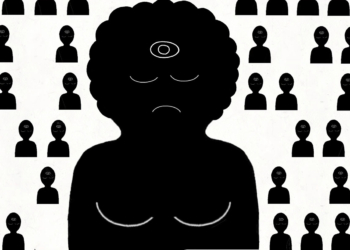A flight leaves behind its contrail. Someone checks their letterbox for news. And, two strangers meet in the unlikeliest places of all – their respective rooftops. These form the recurring themes of Maya Jasmin’s 15:12 minutes’ long film ‘Dächer meiner Stadt’(Rooftops of My City) that revolves around friendships, identities and conversations. In a time of Snapchat and Tinder, this film revisits the lost charm of direct conversations, trepidations in approaching someone and the warmth of having found a friend.
Terence Schweizer plays Oliver, an actor from Lugano (Switzerland) who is awaiting his artist visa. Maya Jasmin (who also happens to be the writer of the film) plays Lena, a singer from Ulm (South of Germany). The two have exchanged glances before; across their rooftops. Both lost in their own worlds, yet aware of one another. It takes them a chance brushing past of each other at the local mart to start a conversation that lays the premise of this film.
 Oliver & Lena prod each other with honest questions, hoping to perhaps find an answer for themselves more than the other person and it leads to some of the most memorable quotes this film has to offer. Their conversations touch upon everyday issues and yet from the prism of their point of view, these talks aren’t an everyday conversation for them, they’re an everyday part of their lives.
Oliver & Lena prod each other with honest questions, hoping to perhaps find an answer for themselves more than the other person and it leads to some of the most memorable quotes this film has to offer. Their conversations touch upon everyday issues and yet from the prism of their point of view, these talks aren’t an everyday conversation for them, they’re an everyday part of their lives.
The characters are well researched and offer a lot to chew on with dialogues that are well crafted, thus making them relatable. When Jasmin says that every advertisement she sees, every YouTube video she watches and every person she meets influences how she feels for the day, you’ll somewhere find yourself nodding. It’s that eloquent and earnest. The script clearly also takes into account the language barrier and connotations that come into play with accents and newly learnt dialects. Schweizer as Oliver is remarkable. His floppy hair and lanky demeanour, charming accent and easy approach add the necessary tonality to his character. And, Jasmin as Lena is spectacular. Her timing, body language and dialogue delivery are worth noting.
 Shu Hirayama’s elegant cinematography offers some unusual shots taking the narrative to unexpected quarters, surging unexpected emotions in us. The editing, also by Hirayama is top notch. Key Szost’s music is never a hindrance and plays in the background like a gentle breeze making it all the more pleasant. The open-ended climax with Lena at the mailbox opening a letter leaves behind questions in our minds and hopes too…
Shu Hirayama’s elegant cinematography offers some unusual shots taking the narrative to unexpected quarters, surging unexpected emotions in us. The editing, also by Hirayama is top notch. Key Szost’s music is never a hindrance and plays in the background like a gentle breeze making it all the more pleasant. The open-ended climax with Lena at the mailbox opening a letter leaves behind questions in our minds and hopes too…
This film is a sensitive retelling of the innermost feelings of two strangers as they find their new home in the unlikeliest and yet most comfortable places of all – in each other.
















